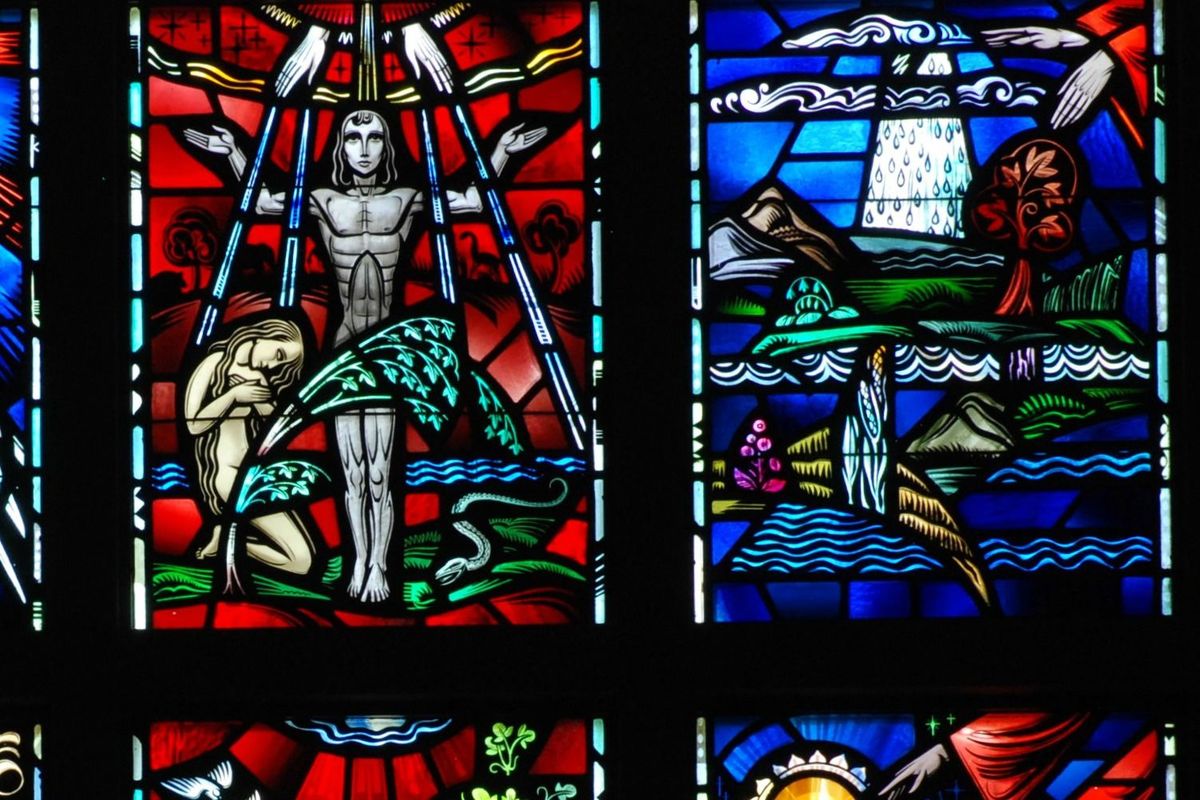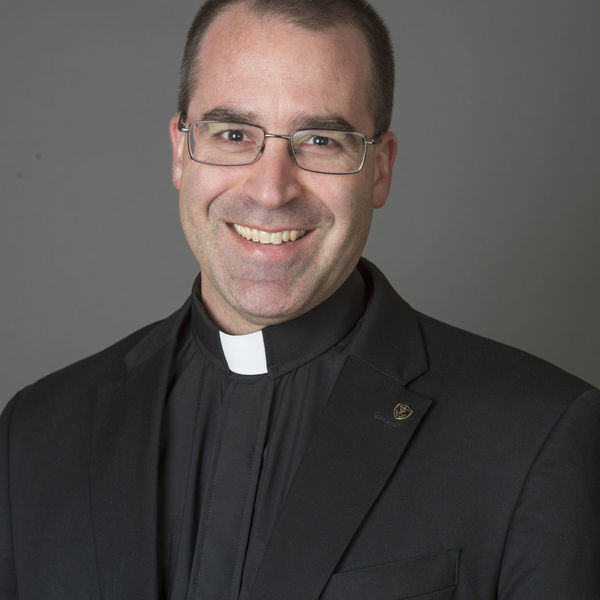Today, the Catholic Church joins with the Orthodox Church in praising God the Creator and praying for the care of creation. One year ago, Pope Francis instituted the “World Day of Prayer for the Care of Creation” to be celebrated, henceforth, on September 1. In addition to its primary focus on creation, it was an ecumenical gesture toward the Orthodox Church which has celebrated “The Day of Prayer for Creation” since 1989 when Ecumenical Patriarch Dimitrios instituted it.
September 1 is the feast of the Indiction, or first day of the ecclesiastical year for the Orthodox. The Orthodox offer “prayers and supplication . . . for all creation” on this day to praise and thank God and to turn sinful humanity back to its proper relationship, not only with God, but with creation.
Patriarch Dimitrios wrote that we were “created in order to refer creation back to the Creator, in order that the world may be saved from decay and death.” His successor Ecumenical Patriarch Bartholomew, who has been called the Green Patriarch because of his prophetic condemnation of ecological sin and his evangelical focus on a spiritual renewal concerning our relationship with the earth, shares the same concern with Pope Francis about the future of creation (Laudato Si’ §§7-9). Prayer for creation points to our fundamental identity and mission as Christians.
Pope Francis startled many people around the world when he promulgated his encyclical Laudato Si’ on the Solemnity of Pentecost, May 24, 2015. He focused the Church and the world’s attention upon the ecological situation of humankind and our common home, the Earth. Rooted in Catholic Social Teaching and building upon the ecological teaching of previous popes and national bishops’ conferences reaching back nearly 50 years in the Catholic Church, but also upon that of the Orthodox ecumenical patriarchs, Pope Francis broadcast a Christian vision of the identity and mission of the human person as an ecological citizen who has an essential responsibility to care for what God has created.
Often, the resistance to Laudato Si’ given by some, because it addresses ecology and the environment, reflects the centuries’ long diminution of Catholic awareness about God as Creator and our relationship to creation.
Nearly fifty years ago (1967), UCLA historian Lynn White, Jr. blamed Christianity as being the root cause of the ecological crisis. He saw Christianity as the most anthropocentric religion which de-mythologized nature, privileged the human person above all else, and delivered a divine command to exploit the earth for our desires. Such was his interpretation of God’s telling humankind to “subdue” the earth and to have “dominion” over creatures (Genesis 1:28). Science and technology, which only emerged from within a Christian framework, allowed a forceful exercise of this exploitative directive.
White’s indictment of Christianity, however, was overstated, and ultimately inaccurate. First, exploitation of the natural world is not unique to Christians and even pre-dates Christianity. Second, he assumed that religion was the determining factor in how one related to the world. But what about how our views of nature are shaped by social, political, and scientific perspectives? He did not mention, for example, the powerful views of two of the major contributors to the foundation and rise of modern science and its associated technological prowess.
Francis Bacon (1561-1626), considered the father of technology, wrote that “human knowledge and human power, do really meet in one” (Great Instauration), and René Descartes (1596-1650) who promoted that we should “make ourselves, as it were, the lords and masters of nature” (Discourse on Method, Book VI). Though Christians have exploited the earth over the centuries, and even used Genesis as the basis for their actions, their behavior is not representative of God’s wisdom and the Gospel.
Pope Francis himself corrects White’s hypothesis. A biblical command that encourages “the unbridled exploitation of nature” is a misinterpretation of “the Bible as understood by the Church. Although it is true that we Christians have at times incorrectly interpreted the Scriptures, nowadays we must forcefully reject the notion that our being created in God’s image and given dominion over the earth justifies absolute domination over other creatures” (§67). His brief interpretation of Genesis 2:15—to till and keep the garden—highlights the broader meaning of these verbs, “to cultivate, care for, protect”, which places humankind and creation in a relationship of mutual responsibility.
Others, particularly in the Eastern Church, have developing this exegesis further to identify humankind as the priests of creation. “Till” and “keep” are used throughout the Old Testament in reference to Israel’s relationship to God. “Till” is connected to the Hebrew words “work”, “worship”, and “service”, and so Israel is to “[s]erve the LORD with gladness” (Ps 100:2). David instructs his son Solomon to “keep” God’s statutes, commandments, and ordinances (1 Kings 2:2-3).
Moreover, both the seven-day creation account in Genesis 1 and the Garden of Eden in Genesis 2 have direct parallels to the worship of God, whether in the Tabernacle or the Temple. Comparing the creation of the world in Genesis 1 to the construction of the tabernacle in Exodus 25-31, 39-40, one finds striking parallels. For example, God speaks ten times in each (“And God said, ‘Let there be’”; The LORD said to Moses . . .”) and the holiness of Sabbath is declared at the end in both accounts. The Garden of Eden corresponds to the Temple (entrance to both faces east; gold and onyx in both; Adam clothed with garments, Aaron the priest clothed with garments; tree of life, menorah is tree-like candle stand). The Garden, the universe, is a cosmic temple in which Adam and Eve—all of humankind—dwell as priests of creation, just as the priests of Israel served in the tabernacle and Temple.
As priests of creation, humans offer praise and thanksgiving to God for creation itself. We offer ourselves and the world back to God. For the priest, creation and redemption are not separated into unrelated compartments. They are united in the one divine economy, or plan, of God’s salvation.
Christians have forgotten their identity and mission as priests of creation. And, because of sin, we have exploited the earth. Pope Francis’ foremost remedy to restore humankind’s proper relationship to God and the world is a recovery of knowing and worshipping God the Father as Creator (§75) as we profess weekly in the Nicene Creed.
But Francis’ theological vision of creation is also Trinitarian. All of creation comes to be in and through the Word of God (§77, 99) who become Incarnate of the Virgin Mary and takes to himself “part of the material world” (§235). The “ultimate destiny” of all of creation is found in the bodily risen Jesus (§83). The Holy Spirit, the giver of life, “possesses an infinite creativity ” and is “intimately present to each being” (§80).
A rediscovery of God as Creator calls forth a new relationship to God and to the rest of God’s creation. For the Christian, it calls for “‘ecological conversion’, whereby the effects of their encounter with Jesus Christ become evident in their relationship with the world around them.
Living our vocation to be protectors of God’s handiwork is essential to a life of virtue; it is not an optional or a secondary aspect of our Christian experience” (§217). Today, Catholics join their voices as priests of creation with the Orthodox to give praise and thanksgiving to the Creator for His wondrous work of creation entrusted to our care and to ask forgiveness for human sins committed against His world, our common home.

